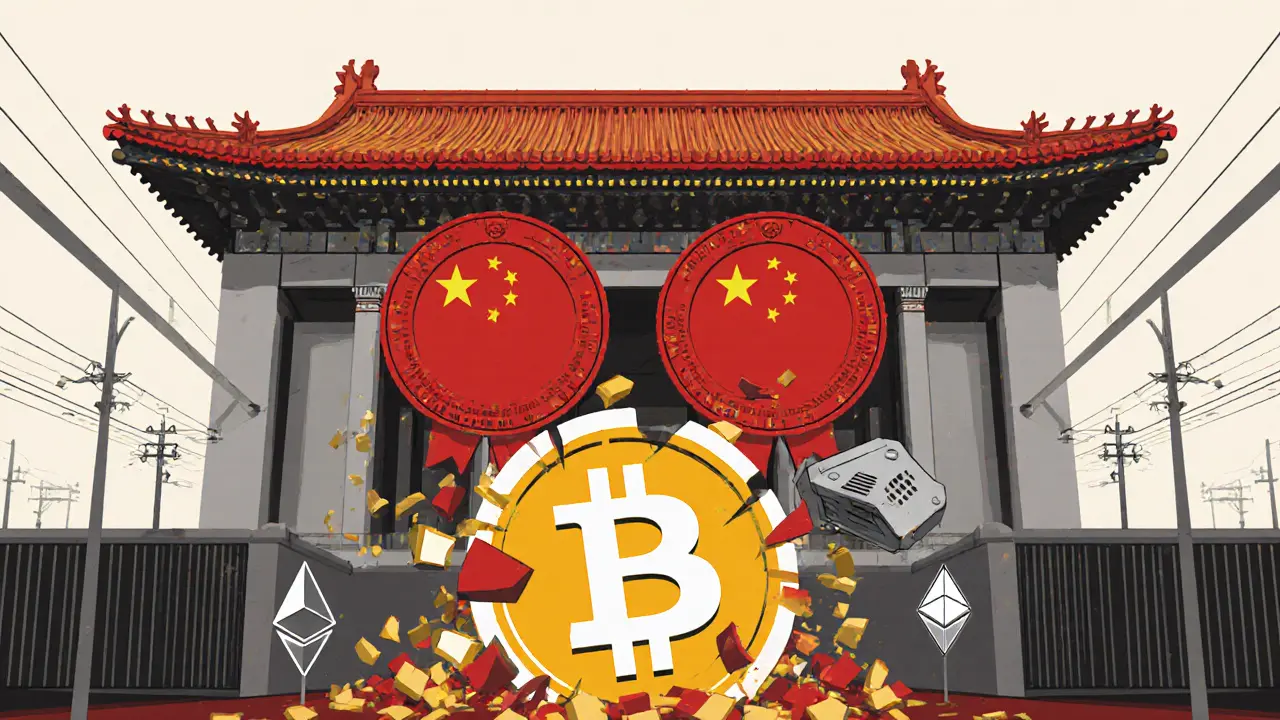Crypto Mining China: What Happened and Why It Matters Today
When people talk about crypto mining China, the period when China controlled over 70% of global Bitcoin mining power before a sudden government ban in 2021. It was the epicenter of blockchain mining — not because of innovation, but because of cheap electricity and lax enforcement. Also known as Bitcoin mining hub, it shaped the entire crypto industry’s infrastructure until it vanished almost overnight.
The Chinese government didn’t just discourage mining — it shut it down completely. In 2021, provinces like Sichuan and Inner Mongolia, where hydro and coal power kept mining costs low, were ordered to cut off power to mining farms. Banks froze accounts. Equipment was seized. Miners scrambled to move hardware to Kazakhstan, the U.S., and Canada. This wasn’t a policy tweak — it was a full systemic purge. The result? Global Bitcoin hash rate dropped by over 50% in weeks. The network didn’t collapse, but the shift forced everyone to rethink where and how mining happens.
What made China’s mining scene so powerful wasn’t just low costs — it was scale. Factories filled with thousands of ASIC rigs ran 24/7, powered by hydropower during rainy seasons and coal the rest of the year. That kind of concentration created vulnerabilities. When regulators moved, the whole system trembled. Today, the world sees proof-of-work, the consensus mechanism that powers Bitcoin and requires massive computational power to validate transactions. Also known as mining-based blockchain security, it’s still the backbone of Bitcoin — but its energy use is now under global scrutiny. Sweden and the EU are pushing restrictions. Texas and Georgia are competing to become the next mining hubs. And the question isn’t whether mining will continue — it’s who will control it next.
Even though China’s mining era is over, its legacy lives on. The hardware built there still runs in other countries. The mining pools that operated from Beijing still manage mining rewards. And the energy debate it sparked — is proof-of-work worth the cost? — is now central to crypto’s future. You’ll find posts here that break down how miners adapted after the ban, how energy policies in Sweden and Turkey now affect mining, and why scams still use "China mining" as a fake selling point to lure people into fake airdrops. This isn’t history. It’s a case study in how government action can rewrite global tech landscapes in months — and why you need to understand it before you invest, mine, or even just hold crypto.
Is Crypto Regulated in China? The Full Ban Explained (2025)
As of 2025, China has banned all cryptocurrency activities-including owning, trading, and mining. The law is strict, enforcement is aggressive, and violations carry prison sentences. Here’s what you need to know.
learn moreMining Crypto in China: Law and Restrictions in 2025
China banned all cryptocurrency mining in May 2025, making it a criminal offense. Learn why the government cracked down, how enforcement works, and what it means for global crypto markets.
learn more
